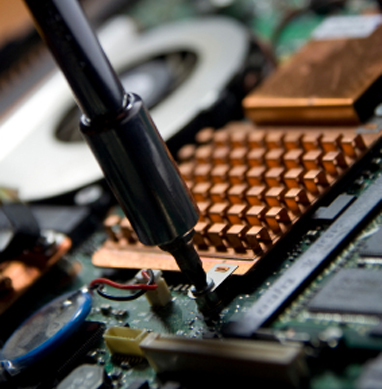

If your laptop is running a little slower than you'd like, or you need better graphics for your PC without the price of a whole new machine, why not consider an upgrade?
Upgrades are a cheaper way to improve the overall performance of your computer without having to buy a brand new one. The processor and the RAM can be upgraded to allow your computer to run quicker, and the hard drive can be upgraded to a larger capacity - giving you more storage space for music, films, photos and more. Even the graphics card can be upgraded, allowing you to run the latest games without resulting to reducing detail and turning off shadows. As each component is upgraded, you'll really notice the difference in your PC's speed and capability.
Whilst not every machine is capable of an upgrade, tower computers stand the best chance of benefiting from upgraded individual parts, refreshing and bettering your computer's performance. Some laptops can also be upgraded, although many laptops have integrated components, meaning that they are part of the motherboard and are therefore one giant component welded together, making it hard to replace just one item. Here at mamu, we can take a look at your machine, identify any bottlenecks and let you know if it qualifies for an upgrade with no obligation to purchase and no pushy sales technique. We can also give you computer a good clean (both literally and figuratively) removing the clutter you've gathered.
For a free consultation, call us on 01522 717569 or email us: info@mamu.co
| Unsure of some of the terms we've used? We've handpicked a few definitions for you below, or you can visit our glossary for a comprehensive list. Click on 'read more' to see the full definition. | |
| Graphics Card: Also known as a video card or a display adapter, the graphics card generates the graphics that users see on their monitors. Low-end and laptop graphics are usually generated by 'on-board graphics' - a graphics chip that is embedded on the m... read more | |
| Hard Disk Drive (HDD): The hard disk drive is the hardware that stores and retrieves information in a computer system. Unlike RAM, which resets when the computer is turned off, the hard drive keeps all information intact due to the data being stored magnetically.... read more | |
| Memory: Much like human memory, computing memory is a collective term for the parts of the system that store and retrieve data. There are several parts that do this - the RAM, the hard drive, the CPU's cache and flash memory - and each work in a sl... read more | |
| Motherboard: The motherboard is the main circuit board of the computer, and is used as a connector and controller for the key hardware of the system such as the CPU and the RAM. The motherboard acts as the 'go-between', making your hardware components w... read more | |
| Power Supply Unit (PSU): The power supply unit (PSU) converts the AC power from the mains to several DC voltages to power the different components within the computer. The PSU needs to have a sufficient power rating in order to meet the demands of the computers com... read more | |
| Quad-Core: A quad-core processor is a CPU that has four individual processors that are linked together to increase speed and performance. Because these processors are bound together onto one board but remain separate processing entities, they can perf... read more | |
| Solid State Drive (SSD): Solid State Drives get their name by having no moving parts compared to traditional hard disk drives (HDD) that use spinning disks, making SSDs far quicker and more durable than HDDs. The lack of moving parts also makes SSDs silent and more... read more | |
| Windows 8: Windows 8 is the newest version of the Microsoft Windows operating system available. Released on October 26th 2012 (but available for manufacturers to put on their computers from August 2012), it has radically dispensed with the Start Menu ... read more |